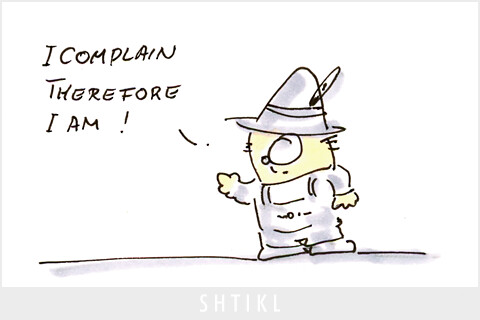I've been reading the new R. David Lankes book,
The Atlas of New Librarianship, as part of a
MOOC he's doing through Syracuse University's iSchool. I'm only about 60 pages in, but it's an excellent read so far and it's sent my brain careening down several new paths of ideas. One aspect of this book and his call for a "new librarianship" is a shift away from
artifacts and towards
conversations as the basis for knowledge creation. I'm not going to go into the whole thesis of the book, which covers a lot more ground, but this issue of our (and our community members') reliance on
artifacts as knowledge containers struck me as a very important one for the instruction I do, especially with our undergrads. This thought was reinforced by a
recent Inside Higher Ed post from Barbara Fister.
In both cases, it's observed that there is an over reliance on artifacts/containers (books. articles, etc. - things that attempt to express someone else's knowledge) as sources of knowledge, rather than on creating knowledge by conversing with those sources (i.e., internal dialogues we all have when we interact with any new piece of data).
To paraphrase Lankes (from pp. 40-41):
Artifacts do not contain knowledge. Knowledge exists in your head. Knowledge is dynamic and personal.
The result, as Fister succinctly summarizes, is
"When sources are viewed as containers, it potentially diverts attention away from the content of the sources themselves."
As a result of all this internal dialogue on my part, I've been trying to come up with a better way of stressing this to students who attend my instructional sessions (many of whom, as you are probably aware, just want to know how to satisfy the requirements of whatever assignment they have - they want the "How" rather than the "What" or the "Why." Trying to change this focus, I believe, could have a positive impact on students critical thinking, transliteracy and basic research agility when it comes to handling the wide variety of information sources (and assignments) they will come into contact with during their academic career and beyond.
This is what I have so far, as a draft starting point (and obviously, heavily influenced by Lankes and Fister); as an argument. How I make it so that it appeals/impacts students, I haven't yet worked out:
First a couple of questions:
- Is a journal article or a book considered knowledge?
- How many of you have come here thinking I'm just going to show you how to find stuff; pieces of knowledge?
Library resources, in fact, any pieces of information you encounter (books, articles, web pages, lectures, conversations with your peers, what I'm saying right now) ARE NOT knowledge. They are only containers of information. Knowledge is only created when someone - YOU - reads/interacts with that information. That is when you learn. Then, what you know about that topic (your knowledge) is either changed/created, or not.
When you read a journal article, or, for example, as you are listening to/reading this now, each of you is having an internal dialogue with yourself. Right now you may be thinking something like this: "Dana is talking nonsense" or "ok, that makes sense!" The bottom line is that, for example, a peer-reviewed journal article is not the word of law. It is not knowledge. YOU create knowledge by interacting with/conversing about (with yourself, with your classmates, with your professor) that piece of information.
My challenge to you, as you embark on your academic career, is to learn and talk about and add to your chosen discipline, rather than simply finding sources of information and copy and pasting that information into your papers. Create rather than regurgitate!














